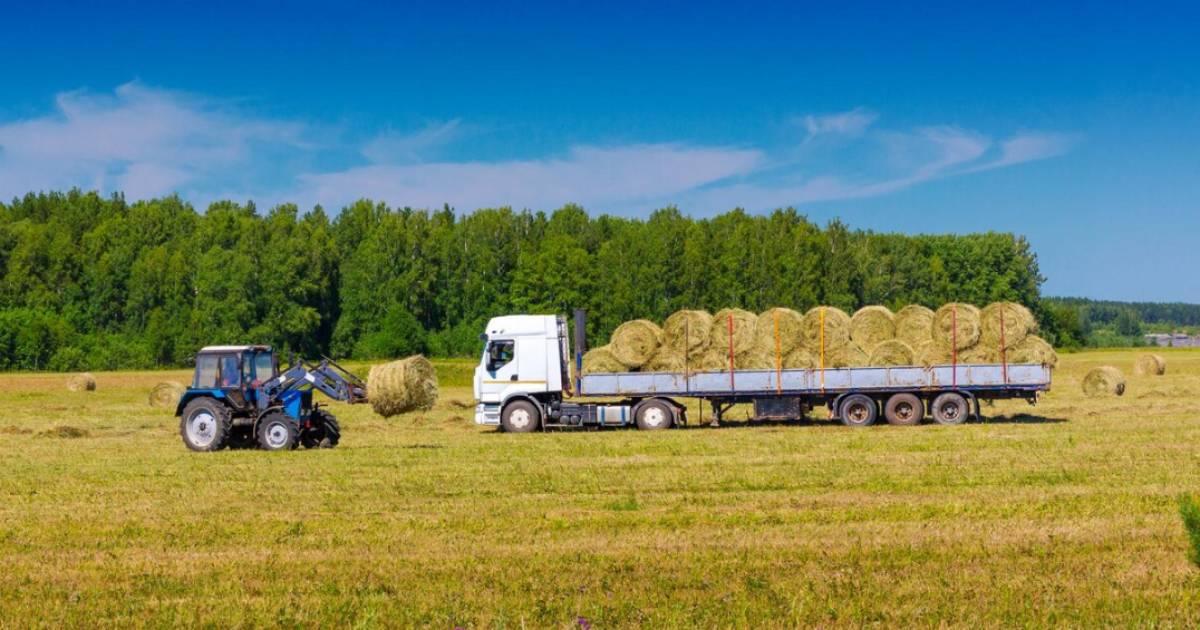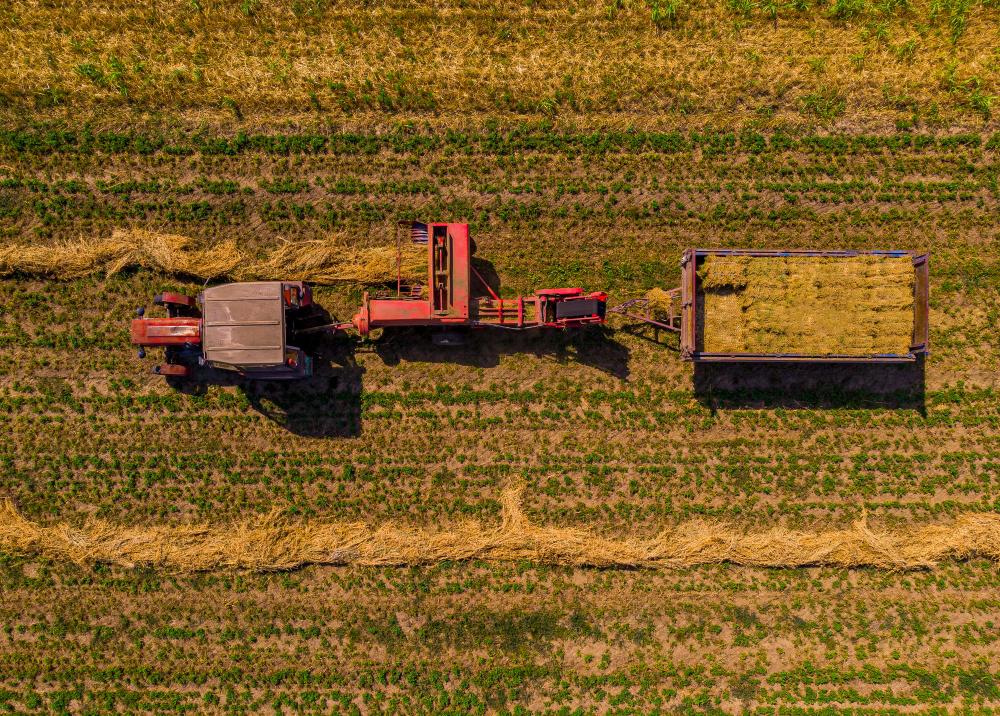
The blog explores how efficient logistics management is crucial in agriculture, focusing on timely crop transportation. It addresses challenges like food waste and inadequate infrastructure, highlighting the importance of logistics in reducing costs and optimizing operations. Strategies for enhancing agricultural logistics efficiency, including the Kisan Rath app, are discussed, stressing the need for technological investment for productivity and cost reduction in farming.
In any business, efficient management is key to maintaining operations and achieving goals. This is especially true in the logistics industry, where the challenges of coordinating transportation, warehousing, and other supply chain activities can make or break a company.
In the agricultural industry, logistics management is essential for getting crops to market in a timely and efficient manner. An effective logistics management system can help farmers to reduce costs, improve communication and coordination, and optimize resources. A well-run logistics operation can make the difference between a successful harvest and a poor one.
The Kisan Rath mobile app makes it easier for farmers, FPOs, and merchants to find and get in touch with transport service providers to move agricultural and horticultural goods around India. The Kisan Rath mobile app makes it easier for farmers to find and get in touch with transport service providers to move agricultural and horticultural goods around India.
Logistics-Related Challenges in the Agriculture Sector

The agricultural sector is the backbone of many economies, providing food and raw materials for industries. However, the sector is often beset by logistical problems and issues. Food waste is a crucial problem in reducing hunger and enhancing food security. While increasing output has been the goal, minimising losses in the food supply chain has mostly gone ignored until very recently. Inefficient logistics can lead to increased costs, delays in production, and even spoilage of goods.
Logistics management is therefore crucial for the agricultural sector. The key factors that determine the efficiency with which a farmer can transport his products are:
- The distance between the farm and market (the so-called transportation distance). This is measured in kilometres or miles depending on whether you are talking about long distances or short distances.
- The time taken by land transport, which depends on many factors: weather conditions, vehicle loading capacity and availability of roads (in other words, the number of hours of travel per day).
- The cost per kilo transported by land transport compared to air freight or maritime shipping. Air freight costs can be up to three times less expensive than road transportation even if they take longer!
However, there are many logistics challenges that our agriculture industry needs to focus on in order to get efficiency. By improving logistical systems and processes, agricultural businesses can overcome many of the challenges and problems they face. This can help them to reduce costs, improve efficiency, and better serve their customers.
Here are some of the challenges we need to tackle to streamline the efficiency of agricultural business in India:
- The farm may be located in a remote area or on a Native American reservation where there are limited roads or no roads at all. That makes getting products from the farm to market difficult.
- Another major obstacle to decreasing hunger and improving food security is food waste. Minimizing losses in the food supply chain have largely gone unnoticed until fairly recently, despite the objective of boosting output.
- Lack of market knowledge, such as price cues, consumer demand, and supply constraints, leads to inefficient logistics management, which drives up production costs and decreases market surplus.
- Lack of resources and infrastructure is another factor in the waste of agricultural products and inefficient logistics systems.
- Fleet management is the weakest point in agriculture logistics. Farmers and manufacturers either use antiquated technology or haphazard, untrained fleet providers for fleet management. Because they don't know what happens to their cargo while it's being carried, fleet providers frequently can't guarantee specific conditions.
Explore the ultimate guide to Third-Party Logistics (3PL) in the retail sector, uncovering key strategies, benefits, and best practices for seamless supply chain management. Gain insights into optimizing operations and enhancing customer experiences with efficient 3PL solutions.
Importance of Logistics Management in Crop Production

Crop production is a vital part of the agricultural industry and efficient logistics management is essential to its success. Logistics refers to the planning and coordination of transportation and storage of goods and materials. In the context of crop production, logistics management includes everything from seed selection and procurement to field planning and resource allocation, to harvest scheduling and product distribution.
- For the buyer's happiness, both the quality of the items and the quality of the delivery are essential. The majority of agricultural products are large, perishable, consumable items. The items must be protected from damage during transit through proper packing and transportation. Gathering a harvest involves several phases, including harvesting, threshing, winnowing, bagging, processing, and storing. They differ in some ways, thus the quality of the transit is just as important as its accessibility.
- An effective logistics management system can help farmers optimize their operations for maximum efficiency and profitability. By reducing waste and maximizing the use of resources, logistics management can help farmers increase their yields and decrease their costs. In today's competitive marketplace, efficient logistics management is essential for any farm that wants to stay ahead of the competition. A more effective and efficient management system is being developed for agricultural logistics, which includes physical gathering of primary products from farms and homesteads, processing and storage at various levels, handling, packing, and distribution of finished goods.
- The supply's reliability makes a huge effect. The problem of losses due to rotten food, late delivery, and production downtime can be resolved via traceable, precise, and consistent agricultural supply chains.
- Software for managing agricultural logistics might be crucial in the delivery of agro-food goods. Aside from essential components like sensors to monitor cargo conditions and GPS tracking, to cut out the lengthy chain of middlemen, companies, and startups must use a web and mobile-based information exchange platform to link buyers and sellers of agricultural products and related services directly. Blockchain technology and AI & ML. By making individualized agricultural market information accessible to the farmers at low rates, via a mobile-based service, agricultural institutions and new companies can offer answers to the issue of information asymmetry for agricultural producers.
Delve into the pivotal role of Third-Party Logistics (3PL) services across key industries in our comprehensive guide. Discover how industries rely on 3PL for streamlined operations, enhanced efficiency, and unparalleled supply chain management.
Top Ways to Optimize Logistics To For Fast Agri-Biz Development
Improving the efficiency of agricultural logistics is a critical component of creating a more sustainable food system. Here are some of the top ways to optimize logistics for agriculture:
1. Use advanced data analytics to understand your supply chain performance. And implement GPS tracking for everything you transport
2. Implement multiple types of supply chain optimization strategies, including digital technology and automation, as well as on-farm operations like field management and animal health management.
3. Improve efficiencies through transportation planning, inventory management, and distribution techniques that minimize shipping costs while minimizing delays in receiving products or services from suppliers or customers.
4. Optimize logistical operations through better coordination between departments such as accounting, acquisition, production, and logistics management as well as with suppliers and customers based on their needs (i.e., seasonal changes).
5. Don’t forget about cold chain logistics – if you can get your food into stores faster than they might be able to sell it themselves, you could save money on unnecessary transportation costs and losses due to spoilage or other problems along the way (like refrigeration issues).
Discover the essential role of 3PL in optimizing construction site logistics. Explore a comprehensive guide highlighting its benefits, strategies, and impactful solutions for efficient project management.
Optimize Logistics! Take Your Agribusiness to the Next Level
The fourth largest sector of the economy and one of the most important for employment, agriculture is vital to the economy of many countries. As a result, logistics companies need to support this sector to increase their market share. However, the challenges faced by agriculture are many, ranging from the increasing demand for food production to confronting climate change. In order to meet these challenges, it is important to invest in technologies that enable farmers and other stakeholders to maximize productivity while minimizing costs, such as logistics optimization. So make sure, you choose the right logistics partner who understands your requirements and market worth.